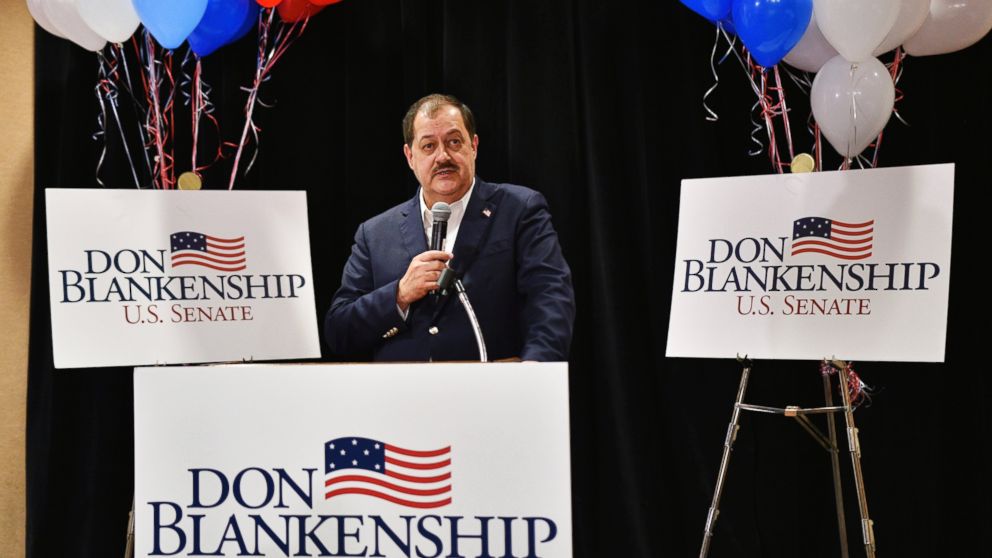[ad_1]
Interested in Midterm Elections?
Add Midterm Elections as an interest to stay up to date on the latest Midterm Elections news, video, and analysis from ABC News.
Despite losing the Republican primary in a distant third-place, convicted ex-coal baron Don Blankenship announced Monday that he will continue his bid for U.S. Senate as a third-party candidate, though it’s unclear if the move violates West Virginia’s “sore loser” law.
Blankenship will run as a member of the Constitution Party, which nominated him by a unanimous vote, his campaign said in a news release.
West Virginia secretary of state spokesman Steve Adams said Blankenship has officially switched his party affiliation to the Constitution Party. But Adams has said West Virginia’s “sore loser” or “sour grapes” law prohibits candidates affiliated with a major party who lose in a primary from changing their registration to a minor party to take advantage of later filing deadlines.
In comments made before Monday’s announcement, Mike Queen, who is communications director for Secretary of State Mac Warner, said Blankenship wouldn’t be allowed to run in a general election.
“The Secretary’s position is that Mr. Blankenship is not permitted to run again in the general election for the United States Senate,” Queen told the Charleston Gazette-Mail in a story published Saturday. “If Mr. Blankenship pursues the matter, he will most likely have to bring a legal action to force the Secretary to approve his candidacy.”
On Monday, the office referred questions to its lawyer, who did not immediately respond to questions.
In his statement, Blankenship says, “Although the establishment will likely begin their efforts against us by mounting a legal challenge to my candidacy, we are confident that — if challenged — our legal position will prevail, absent a politically motivated decision by the courts.”
Blankenship said his personal views align with those of the Constitution Party, whose goal is to restore U.S. government philosophy to its Biblical foundations and to limit the federal government to its constitutional boundaries.
Blankenship, a former executive of Massey Energy, spent a year in federal prison for violating mine regulations in a 2010 mine explosion that killed 29 miners.
More recently, he took swipes at “China people” and referred to Senate Majority Leader Mitch McConnell as “Cocaine Mitch” in campaign ads during the Republican primary. Blankenship sold himself as “Trumpier than Trump” during the race, but the president opposed him. The White House worried that Blankenship’s baggage would make it all but impossible to defeat Democratic Sen. Joe Manchin in the general election.
West Virginia Attorney General Patrick Morrisey claimed the nomination instead, promoting his record of challenging policies of the Obama administration.
In 2016, Trump claimed his largest margin of victory in West Virginia. Looking ahead to the general election, Manchin — who has held elected office in West Virginia for the better part of three decades — has a huge financial advantage over Morrisey after easily winning the Democratic primary. But he’s expected to face the most difficult re-election campaign of his career.
[ad_2]
Source link

